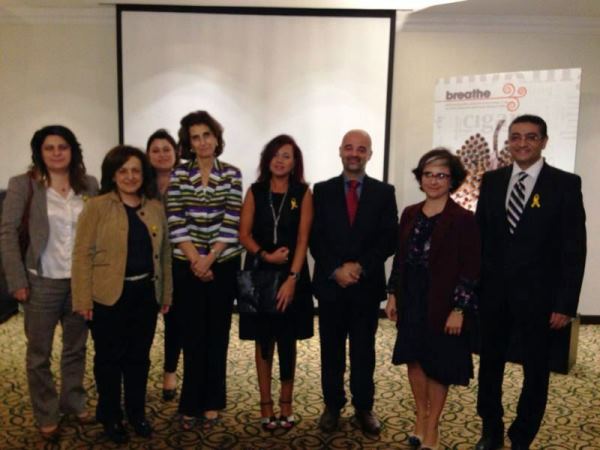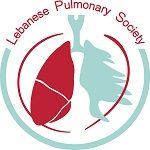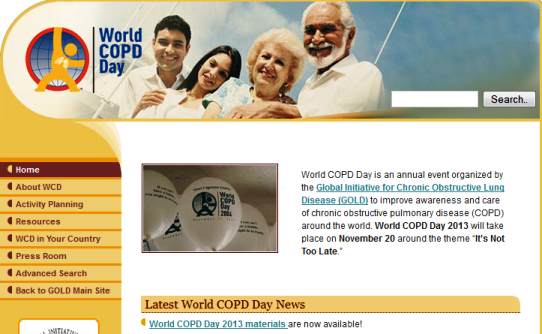Vice President Lebanese Pulmonary Society
Pulmonary and Allergy Specialist
Head of Pulmonary Department
Mount Lebanon Hospital
Lebanese University Medical School
World COPD day is an annual event that aims to improve awareness and care of COPD around the world.
This year’s World COPD Day theme, “It’s not too late”, emphasizes the meaningful actions people can take to improve their respiratory health, at any stage before or after a COPD diagnosis.
This year, on November 20, the LPS was celebrating the World COPD day in collaboration with GSK and local data about disease prevalence, burden and importance of smoking cessation were given.
Dr Marie Louise Koniski (Chest Physician-University Medical Center-Rizk Hospital), presented data from the Breathe study: A multinational general population based-survey conducted in 2011-2012 in 10 countries in the ME and North Africa and Pakistan.
These data on COPD in the MENA region, emphasize the fact that there is a strong need to highlight the burden of the disease, increase the awareness of the medical community and healthcare authorities about COPD in a comprehensive guide or directory called White Book.

Dr Mirna Waked, president of the LPS (Chest Physician-St Georges Hospital University Medical Center) presented the value of the white book which is a useful tool to all health care professionals dealing with COPD patients as it provides up to date and robust data on COPD prevalence, burden, current management and future recommendations.
Since smoking is considered the major risk factor for COPD, morbidity and mortality from COPD is expected to rise in developing countries over future decades due to increase in the prevalence of smoking. Smoking cessation is a key factor in COPD treatment. Dr Zeina Aoun, Chest Physician and head of the smoking cessation centre at Hotel Dieu de France University Medical Center went through the most appropriate interventions to help COPD patients to give up smoking.
Finally, Dr Salah Zeineldine (Chest Physician-American University of Beirut Medical Center) gave an overview of the most recent GOLD classification with emphasis on the driving forces behind it, along with pitfalls to the classification and possible expected modifications for the better management of COPD in Lebanon.


